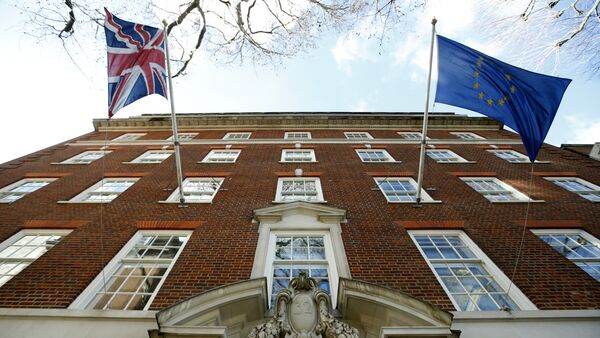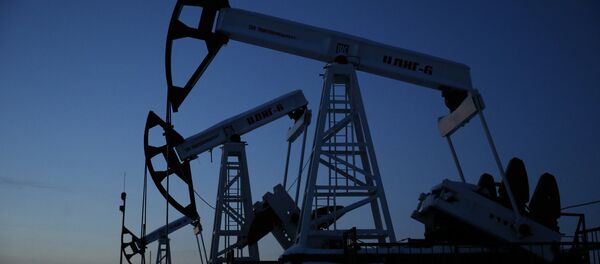Kristian Rouz — Last month's turmoil in financial markets across the world has made a substantial impact to the prospects of economic growth both in advanced nations and emerging markets, yet, the political risks that came to prominence more recently bear a greater threat to sustainability of global growth. The Middle Eastern situation, with the likes of Turkey and Saudi Arabia being just a step away from direct involvement into the Syrian situation might potentially trigger a dramatic surge in global oil prices, going to as high as $100/bbl — a development global markets are not prepared for.
An outlook on the UK possibly leaving the EU is another political risk having grave consequences to stability of the world's biggest financial hub, the City of London.
Meanwhile, as the US Federal Reserve outlined, domestic risks currently brewing within the markets themselves will hardly affect economies significantly, so it is international politics to watch for clues on the impending economic disaster.
"When you look into 2016, the one thing very clear is there are more fat tail risks out there than we've seen for a long time," Paul O'Connor of the London-based Henderson Global Investors said.
The potential consequences of military escalation in the Middle East (that is, a full-scale ground operation) include a massive surge in oil prices up to $100/bbl. International markets have by now comfortably adjusted to cheap oil, with oversupply lingering in the market and the US being able to put out indefinitely larger amounts of crude to export. Consequently, short-term positions in oil trading are near their all-time highest: traders believe oil might go down further, thus avoiding longer-term contracts. This leaves them exposed to a possible rise in oil prices.
"A spike in oil prices to $100 per barrel is the number one geopolitical risk that the markets are not pricing for," Neil Dwayne of Allianz Global Investors said.
Resulting from the current patterns of trading in oil, a surge in prices would mean crude dealers will start losing huge amounts of their money. This, in turn, will hit wealth funds and management companies. The imminent capital carnage would push the global economy into an across-the-board recession. Certain enterprises and even nations will still be able to capitalize on the surge, for instance. Struggling US small caps would likely be relieved, as well as oil giants like Shell and BP, and nations like Saudi Arabia, Brazil and Russia. But the capital wipeout in financialized economies would be brutal, and that means quite dire consequences for the UK, Hong Kong, mainland China and Japan. To make things worse, the two latter nations are also net crude importers.
Purely market-produced risks are becoming less significant amidst the abundance of systemic political turmoil. The US Fed admitted market volatility itself does little harm to the economy, yet, spillovers of political risks might unwind a series of unpredictable events resulting in a possible economic disaster.
"If the recent financial market developments lead to a sustained tightening of financial conditions, they could signal a slowing in the global economy that could affect growth and inflation in the United States," Federal Reserve Vice Chairman Stanley Fischer said. "But we have seen similar periods of volatility in recent years <…> that have left little visible imprint on the economy, and it is still early to judge the ramifications."
With political factors in focus, however, market participants are seeing less money-making opportunities, meaning wider scale perceived downgrades in assets appeal across the world. Whilst emerging markets have already suffered from disinvestment since at least early 2015, the most politically exposed of them are likely to take the first hit. Advanced nations are only likely to sway into a recession, which, amidst the weak inflation and faltering growth in economy and, more importantly, wages, is already looming even without Brexit or swings in oil.



